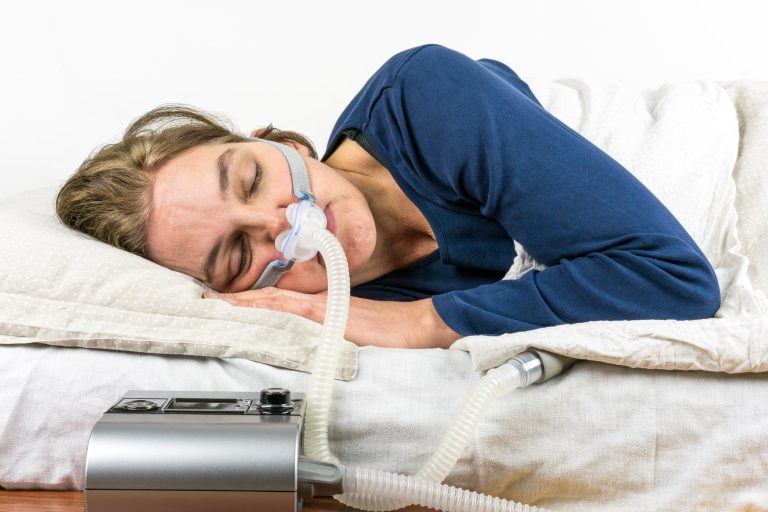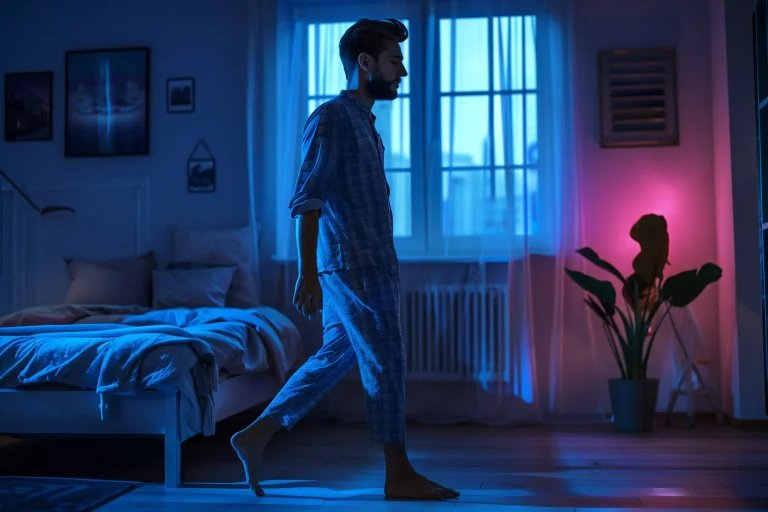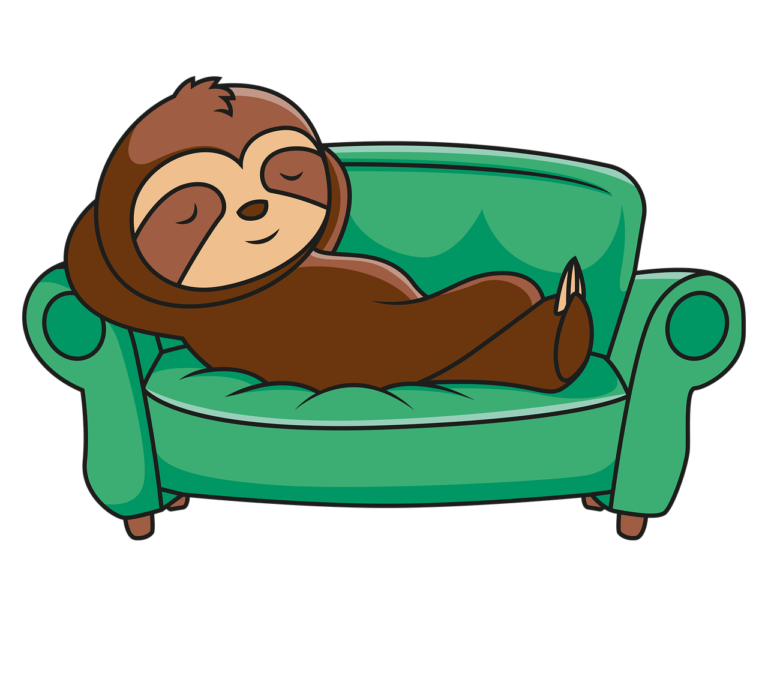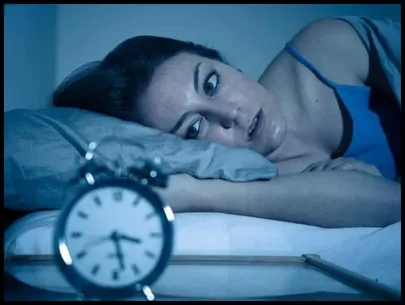Can’t Stay Asleep? How a Sleep Study Can Identify the Cause
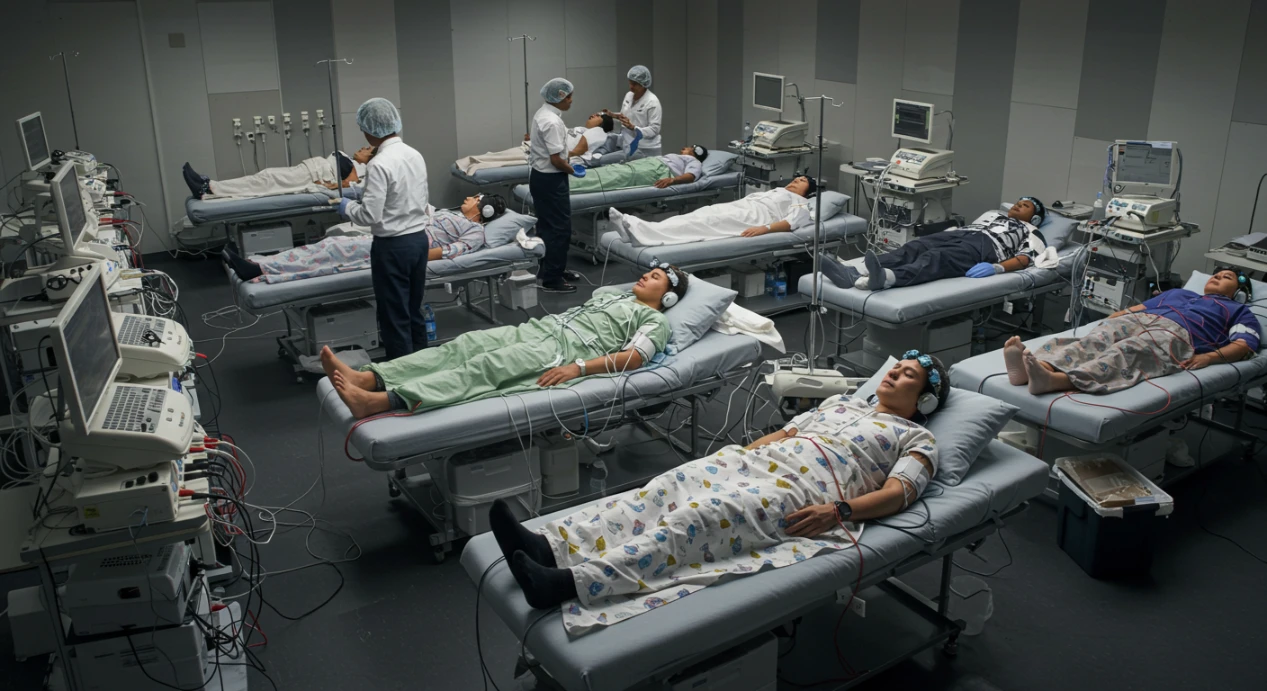
Sleep is essential for overall health, yet millions of people struggle with disrupted sleep. If you find yourself waking up frequently at night and struggling to stay asleep, you may be experiencing a sleep disorder such as insomnia. While occasional restlessness is normal, persistent issues can impact mental and physical well-being. A Sleep Study for Insomnia can uncover underlying causes and lead to effective treatments.
What Is a Sleep Study and How Does It Work?
A sleep study (polysomnography) is a non-invasive test conducted in a specialized sleep center to monitor and analyze sleep patterns. This study records physiological functions such as brain activity, heart rate, breathing, and movement. The collected data helps identify issues such as insomnia, sleep apnea, restless leg syndrome, and other disorders that might be disrupting sleep.
Types of Sleep Studies
- Overnight Polysomnography (PSG) – Conducted in a sleep center, this comprehensive study monitors multiple sleep parameters.
- Home Sleep Apnea Test (HSAT) – A more convenient option for diagnosing sleep apnea, but not suitable for complex sleep disorders.
- Multiple Sleep Latency Test (MSLT) – Evaluates daytime sleepiness and is often used for diagnosing narcolepsy.
- Maintenance of Wakefulness Test (MWT) – Measures the ability to stay awake and is used for individuals in high-risk professions.
How a Sleep Study Helps Diagnose Insomnia
Insomnia is often linked to multiple factors, including stress, anxiety, poor sleep hygiene, or underlying medical conditions. A Best Sleep Study Center evaluates the root cause by assessing sleep architecture, brain wave activity, and disturbances throughout the night.
Common Causes of Insomnia Uncovered in a Sleep Study
- Sleep apnea: Frequent breathing interruptions prevent deep sleep.
- Periodic limb movement disorder (PLMD): Unconscious leg movements disrupt rest.
- Restless leg syndrome (RLS): Uncomfortable leg sensations lead to nighttime awakenings.
- Circadian rhythm disorders: Mismatched sleep-wake cycles affect rest.
- Psychological factors: Stress, anxiety, or depression can trigger sleep disturbances.
What to Expect During a Sleep Study
- Pre-study preparation: Avoid caffeine, alcohol, and heavy meals before the test.
- Arrival at the sleep center: Patients check in during the evening and are guided to a private room.
- Monitoring process: Sensors are placed on the scalp, face, chest, and limbs to record sleep data.
- Sleep duration: The study typically lasts for a full night (6-8 hours).
- Post-study review: A sleep specialist evaluates the results and discusses treatment options.
Interpreting Sleep Study Results
After the study, results are analyzed to determine sleep efficiency, the number of awakenings, and the presence of any disorders.
Key Findings in a Sleep Study
| Parameter | What It Measures | Possible Findings |
|---|---|---|
| Sleep Latency | Time taken to fall asleep | Delayed onset suggests insomnia |
| Sleep Efficiency | Percentage of time asleep vs. in bed | Low efficiency indicates poor sleep quality |
| Apnea Index | Breathing interruptions per hour | High index suggests sleep apnea |
| Arousal Count | Frequency of night awakenings | Increased counts indicate disruptions |
| REM Latency | Time to reach REM sleep | Delayed REM may signal disorders |
Treatment Options After a Sleep Study
Once the cause of sleep disturbances is identified, personalized treatment can begin. Common recommendations include:
- Cognitive Behavioral Therapy for Insomnia (CBT-I): A structured, non-medication approach to improving sleep.
- Medications: In some cases, sleep aids or antidepressants may be prescribed.
- CPAP Therapy: Continuous Positive Airway Pressure for sleep apnea.
- Lifestyle Changes: Adjusting sleep hygiene, diet, and stress management techniques.
- Light Therapy: Helps reset circadian rhythms for individuals with delayed sleep phase syndrome.
Why Choosing the Right Sleep Center Matters
The quality of a sleep study depends on the expertise of the sleep center conducting it. A Best Sleep Study Center provides:
- State-of-the-art diagnostic equipment
- Experienced sleep specialists
- Comfortable, home-like testing environments
- Personalized treatment plans
At Vector Sleep Clinic, our team is dedicated to helping patients achieve restful sleep through cutting-edge diagnostics and tailored treatment plans.
Take the First Step Toward Better Sleep
If you struggle with staying asleep or experience frequent nighttime awakenings, a sleep study for insomnia may provide the answers you need. At Vector Sleep Clinic, we specialize in comprehensive sleep assessments and effective treatments to help you regain restorative sleep.
Contact us today to schedule your consultation.
📍 Address: 26, 62-60 99th St, Rego Park, NY 11374
📞 Phone: +1 718-830-2800
📧 Email: vectorsleep@gmail.com
FAQs
1. How do I know if I need a sleep study?
If you have trouble falling asleep, staying asleep, or feel excessively tired during the day despite a full night’s sleep, a sleep study may help diagnose the issue.
2. Is a sleep study uncomfortable?
No. While you’ll have sensors attached to monitor your sleep, most patients adjust quickly and sleep normally during the study.
3. How long does it take to get sleep study results?
Results are typically available within 1-2 weeks, after a sleep specialist reviews the data.
4. Does insurance cover sleep studies?
Most insurance plans cover sleep studies if medically necessary. Check with your provider for specific details.
5. Can I do a sleep study at home?
Yes, home sleep tests are available but are typically limited to diagnosing sleep apnea. More complex disorders require an in-lab study.
6. What should I bring to my sleep study appointment?
Bring comfortable sleepwear, toiletries, and any medications you take at night.
7. How accurate are sleep studies?
Sleep studies are highly accurate in diagnosing various sleep disorders due to their comprehensive monitoring of sleep patterns and physiological functions.
8. What happens if I don’t treat my sleep disorder?
Untreated sleep disorders can lead to chronic fatigue, increased risk of heart disease, depression, and reduced overall quality of life.
9. Are there alternative treatments to medication for insomnia?
Yes, Cognitive Behavioral Therapy for Insomnia (CBT-I), lifestyle modifications, and relaxation techniques can be effective alternatives.
10. How can I schedule a sleep study at Vector Sleep Clinic?
You can contact Vector Sleep Clinic by phone at +1 718-830-2800 or email vectorsleep@gmail.com to book an appointment. By investing in a sleep study, you take an important step toward better health and well-being. Don’t let sleepless nights take a toll on your life—seek expert help today!

